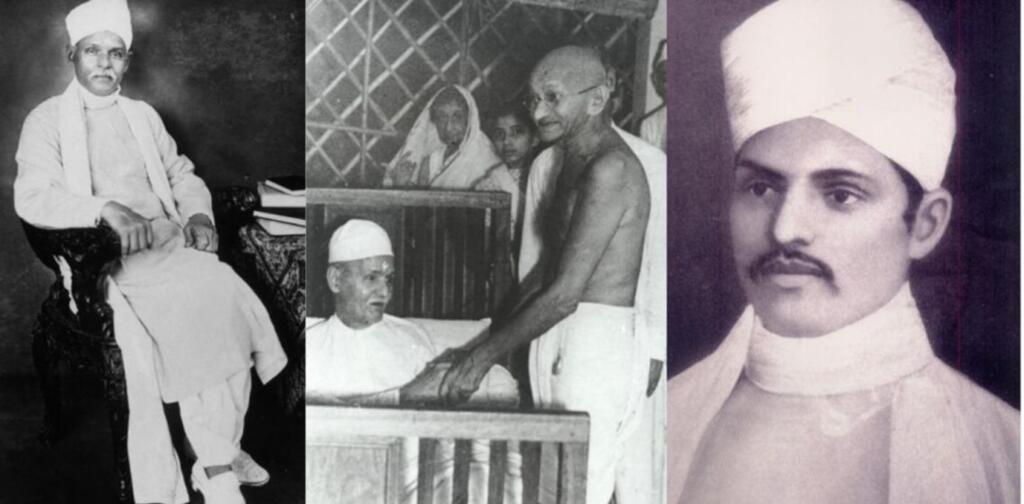On 25th December, Prime Minister Narendra Modi, senior politicians, prominent personalities from all walks of life joins the nation in marking the birth anniversary of visionary freedom fighter, Madan Mohan Malaviya.
महामना पंडित मदन मोहन मालवीय जी को उनकी जयंती पर कोटि-कोटि नमन। वे एक सक्रिय स्वतंत्रता सेनानी होने के साथ-साथ जीवनपर्यंत भारत में शिक्षा के अग्रदूत बने रहे। देश के लिए उनका अतुलनीय योगदान हमेशा प्रेरणास्रोत बना रहेगा। pic.twitter.com/hh2Q2JGdWl
— Narendra Modi (@narendramodi) December 25, 2024
The founder of Banaras Hindu University (BHU), Malviya itched an unparalleled legacy. He was a devout patriot, freedom fighter, educationist, social reformer, journalist, lawyer, and politician.
Early Life and Education
Born on 25th December 1861 in Prayagraj (then Allahabad), Uttar Pradesh, Malaviya belonged to a very modest family. His father, Pandit Brajnath, spent his life in the recitation and dissemination of spiritual knowledge. His ancestral roots were in Malwa, Madhya Pradesh, which gave him his name. He was initiated into Sanskrit education at the age of five and soon became fluent in both Sanskrit and English.
Facing financial crises, Malaviya’s mother mortgaged her bangles to finance his education. He passed BA from Calcutta University in 1884 and became a teacher in Allahabad. His political career began within a year of the formation of the Indian National Congress in 1885. At the second Congress session held in December 1886 with Dadabhai Naoroji as the president, Malaviya made a notable speech on representation in legislative councils.
A Principled Lawyer
Raja Rampal Singh of Kalakankar, Uttar Pradesh, sensed Malaviya’s talent and called him to edit the newspaper Hindustan. Malaviya accepted on condition that Raja would refrain from speaking to him while drunk. When the Raja violated this agreement, Malaviya resigned despite later apologies.
Raja Rampal then requested Malaviya to study law; he bore all the academic expenses involved. In 1891, after completing LLB from Allahabad, Malaviya started practicing law in the district court, and by December 1893, he began his practice in the Allahabad High Court. Malaviya was known for refusing any wrongful case, even if he was offered a good sum. He would instead prefer to fight cases for the poor for free.
Passion for Journalism
Malaviya’s zeal for journalism matched his dedication to the freedom struggle. He launched the Hindi weekly Abhyudaya in 1907, later turning it into a daily in 1915. He also founded the Hindi monthlies Maryada (1910) and another in 1921. In 1909, he established the English daily Leader and served as chairman of the board of directors for Hindustan Times from 1924 to 1946.
A Revered Leader
Pandit Madan Mohan Malaviya’s political career started with the 1886 Congress session in Calcutta. After this, he was the President of Congress four times (1909, 1918, 1930 and 1932). MK Gandhi respected him a lot. He wrote about Malaviya in an issue of Young India, “Tilak looked like the Himalayas to me. When I felt that it would not be possible for me to climb so high, I went to Gokhale. He seemed like a deep ocean to me. I felt that it was not possible for me to go so deep.” Gandhi wrote, “Finally I went to Malaviya ji. He seemed like a clear stream to me, and I decided to take a dip in that holy stream.” Gandhi endearingly named him ‘Mahamana.’ Further, the second President of India, Dr. Sarvepalli Radhakrishnan later bestowed his title as a ‘Karma-yogi.’
Malviya was a follower of both Gopal Krishna Gokhale and Bal Gangadhar Tilak, and his ideology has acted like a bridge between the moderate and extremists of the freedom struggle.
In the year 1930, when Mohandas Gandhi started the Salt Satyagraha and the Civil Disobedience Movement, he actively participated in it and was also arrested. In 1934, he was anguished by the attitude of the Congress on the decision to hold elections on a communal basis; expressing his disappointment, he resigned from the party. Malaviya then founded the Congress National Party along with Madhav Shrihari Aney. Though Malaviya had many ideological differences with Mohandas Gandhi, Gandhi’s respect for him never waned.
Instituted Banaras Hindu University (BHU)
Malaviya envisioned a university combining ancient Indian traditions with modern Western education. He founded the Hindu University Society in 1911 and dedicated himself entirely to the cause, quitting law practice. The Banaras Hindu University Bill passed in 1915, and the university was inaugurated in 1916 with support from luminaries like Dr. Annie Besant.
Malaviya traveled across India and collected over ₹1 crore for the university. A famous anecdote tells of his humility and determination when the Nizam of Hyderabad mockingly offered a single shoe as a donation. Undeterred, Malaviya auctioned the shoe, compelling the Nizam to donate generously.
Defender of Justice
Though Madan Mohan Malaviya retired from law, he again reverted in 1922 for the defense of the Chauri-Chaura incident accused. 153 were acquitted out of 172 accused in his case. He pleaded for the revolutionaries during the Kakori train case that showed him never to stray from justice.
Advocate for Hindu Identity and Swadeshi
A strong promoter of Hindu values, Malaviya promoted reconversion and propounded Hinduism through such events as the Magh Mela. In 1932, he established the All-India Swadeshi Sangh in Varanasi to encourage self-reliance and indigenous goods.
Legacy
Madan Mohan Malaviya passed away on 12th November 1946 at 84, leaving behind a deep impression on the India independence movement. He was described by Pandit Jawaharlal Nehru as a foundational pillar of modern Indian nationalism. In 2014, he was posthumously given the Bharat Ratna, the highest civilian honor in India. Till date, his life and legacy inspire generations to indulge in selfless service and relentless pursuit of national progress.
And on his Jayanti, TFI pays tribute to his unparalleled contributions to society and his unwavering service to Mother India.
